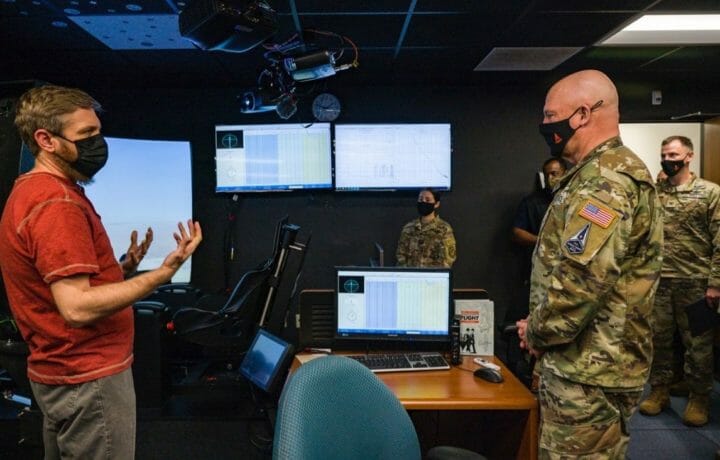When the U.S. Space Force was added as a military branch, a lot of space dreamers got a little excited. But what does that mean for jobs? Are there contractor gigs that can get you to space? What does it really look like to support the Space Force? While the newest member of the military branch took time to figure out what to call their servicemembers and what kind of uniforms to wear, they are also working hard at being efficient and mission driven.
Enter defense contractors on to the scene, ready to support their mission. But sometimes, it’s hard to know what kind of jobs are out there that get you in the Space Force door.
What Jobs Support Space Force
While the majority of Space Force opportunities are technical in nature, there are some program management, technical writer, financial analysts, or administrative assistant positions available that still get you living your space dream. However, the need for engineers, expecially aerospace, systems, software, and network, is great. But you’ll even find that cybersecurity roles and satellite support are also trending on the list. Supporting Space Force also needs data scientists and many different types of analysts – from cryptology to cyber. And anyone who has subject matter expertise in missiles, weather, and environment should keep their eye on the Space Force jobs list. Despite their recent launch as a branch, Space Force got to work quickly to get the mission of defending the U.S. from space up and running. While the branch has previously stated plans to keep servicemember numbers low, it’s clear that contractor partners are needed to meet mission goals.
Contractors With Space Force
If you want to join a defense contractor who supports the Space Force, the options are varied. From SAIC to Lockheed to Perspecta to Booz Allen to BAE Systems to Peraton, the list is certainly long. Each contractor has different benefits and locations, and all of those factors can weigh in on your decision. However, take care to consider the program contracting dates, as that can determine how soon you will be out looking for your next job. While engineers have more flexibility, those who play more of a program support role, like project leads or budget analysts, need to be selective. However, if you check out each company profile, you can keep an eye on how many cleared jobs are available for each employer. Companies like SAIC have hundreds of cleared positions listed, and many of those openings happen to be supporting the U.S. Space Force.
Space Force Clearance Considerations
While not every job requires a Top Secret security clearance, many do. At a minimum, an active Secret clearance – or ability to obtain one is needed. Depending on the program and the contractor, you may be able to support unclassified work while you wait for your background investigation to get completed. Some larger organization have the capacity to keep employees on the bench and provide alternate work, but it really depends on how connected the programs and directors are with each other in the company. If everyone works in silos, it can be hard to get people connected while they’re waiting on a clearance. And for anyone who’s been in the defense contracting world long enough, you know that it can be challenging to stay employed if you don’t have a contract to bill for your time. Best bet at this stage of the Space Force story is to apply with a clearance in hand, but don’t let your lack of one stop you from trying to get closer to your space dream.




